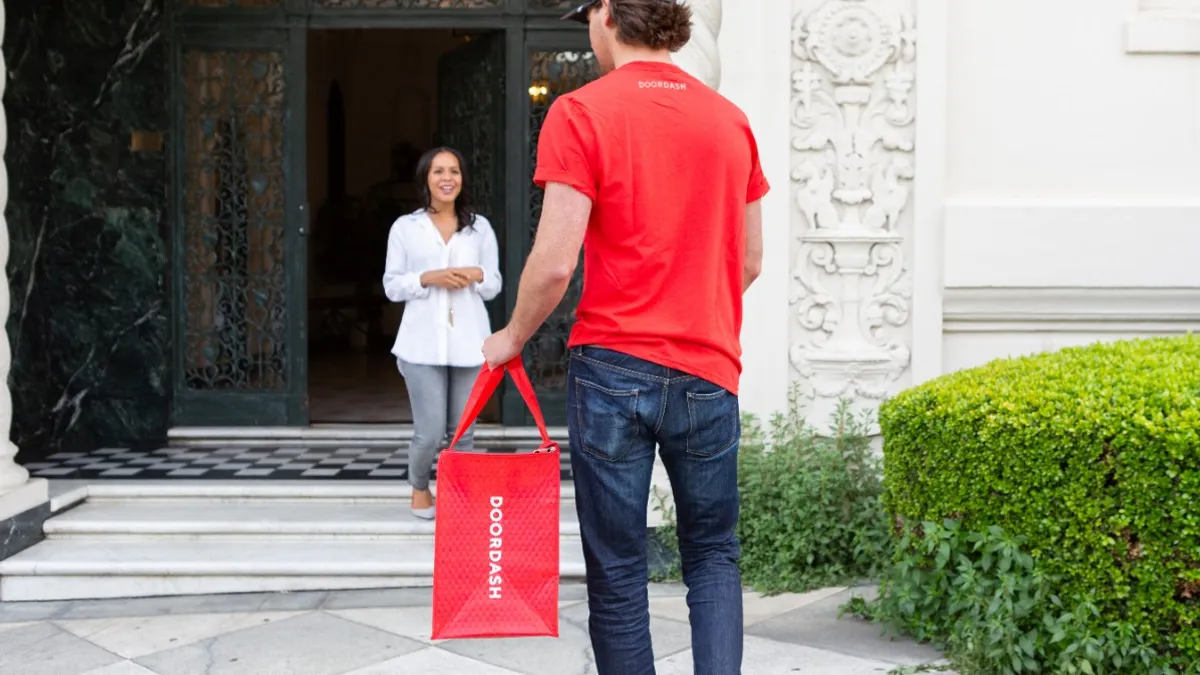The largest U.S. app-based food-delivery service, DoorDash, is rolling out a tiered pricing system that gives restaurants a cheaper way to use its services in exchange for less marketing support and by shifting more of the cost to consumers.
“We’ve been learning [with our merchant partners] what restaurants need and testing our way into what the next phase of pricing should be,” company COO Christopher Payne said, according to The Wall Street Journal.
Restaurants can choose to pay commissions of 15%, 25% or 30% under the new system, based on how much in-app marketing support they want and the size of their delivery area.
Prior to the change, restaurants paid a single commission of 30%, although some larger chains leveraged their scale to negotiate lower commissions, the Journal reported.
In addition to receiving a reduction in marketing support, restaurants choosing the lower commission tiers would effectively pass on higher delivery fees to consumers. On average, consumers ordering from restaurants choosing the 15% commission would pay $4.99, while those ordering from restaurants choosing the 30% commission would pay $1.99.
“Would that negatively impact order volume? Yes it will,” Payne said. “We need to blend the economics on the consumer side and merchant side in order to make the overall system economics work.”
Commission caps
The pricing change comes as more cities impose caps on how much app-based delivery companies can charge. Although DoorDash and other companies lowered or waived commissions at the start of the pandemic, they’ve since reinstated regular pricing even though many restaurants still struggle from curbs on in-person dining, triggering complaints.
In the fourth quarter of last year, DoorDash operated under commission caps in 73 markets — more than double the caps in the third quarter, Restaurant Dive reported.
The caps played a role last year in the company swinging from a profit in the second quarter to a loss in the third quarter and again in the fourth quarter, when it reported a net loss of $36 million, the company said in a shareholder letter.














